With England set to be plunged into a second lockdown from midnight tonight, Retail Week highlights the changes in the new government guidance and what they might mean for your business.
- While food retailers remain ‘essential’, in-store cafes and concessions will be required to close
- One industry leader calls the categorisation process of non-essential retail “arbitrary”
- Homewares remain ‘non-essential’, while DIY and hardware stores will remain open
- ‘Non-essential’ retailers may have the option to offer a click-and-collect service, however the finer details are yet to be announced
From midnight tonight, much of the UK will once again be plunged into a national lockdown called for by the government to stem the spread of the coronavirus in the run-up to Christmas.
As with the first lockdown in March, and other action like the Welsh firebreak shutdown in October, all so-called non-essential retail businesses will be forced to close stores.
While the government has said the second lockdown will last until at least December 2, prime minister Boris Johnson has refused to rule out measures being extended beyond that date should the virus’ R number remain above 1.
In a bid to prepare businesses, the government published regulations late yesterday. While many of the measures are similar to those brought in at the beginning of the crisis, there are one or two exceptions and changes to retailers considered essential or not.
What’s essential?
Top of the government’s essential retail list are food retailers, including supermarkets, convenience stores, corner stores and outdoor food markets.
Off-licences and licensed shops selling alcohol will also be allowed to open.
In a change that may well affect grocery sales during the second lockdown, a number of food-to-go chains such as McDonald’s, Nando’s and Greggs will be allowed to keep premises open to trade on a takeaway, delivery or drive-thru basis, but will close all seated dining areas.
A government spokesperson has said that, unlike in the initial days of the Welsh firebreak shutdown in October, essential supermarkets like Tesco, Sainsbury’s and Asda will still be allowed to sell general merchandise and clothing lines in-store during the lockdown and “will not be told to cover anything up”.
Essential supermarkets will still be allowed to sell general merchandise and clothing lines in store during the lockdown
However, in what may be a blow to some grocers, including Morrisons, cafes will be closed and may provide takeaway services only.
There remains some confusion as to whether in-store cafes can continue to operate on this basis. Non-essential concessions inside essential stores will be closed, other than for click-and-collect services without entering said concession.
In terms of other essential businesses, the list is practically the same as it was in the first lockdown, with the exception of the addition of garden centres.
Non-essential nightmare
For the majority of businesses designated as non-essential in the spring lockdown, the same rule will apply from tomorrow.
The full government list of non-essential retail includes clothing and homeware stores, vehicle showrooms (other than for rental), betting shops, tailors, tobacco and vape shops, electronic goods and mobile phone shops, and market stalls selling non-essential goods.
British Retail Consortium chief executive Helen Dickinson has lambasted the government’s “arbitrary” definitions of essential and non-essential retail and the limited time businesses have been given to prepare.
“The new regulations create arbitrary lines about what is and isn’t an ‘essential’ retailer. Despite the public now being told to both live and work at home where possible, homeware stores were left off the government’s list of ‘essential’ retailers.
“Consumers should be trusted to decide what is essential to them”
Helen Dickinson, British Retail Consortium
“This contrasts with Scotland where such stores are allowed to remain open, even in Tier 4. Consumers should be trusted to decide what is essential to them, be it the home office equipment and electronics they require to work, or the pots, pans, fridges and freezers they need to cook,” she said.
“Furthermore, many retailers will receive the guidance surrounding these regulations with only hours before the lockdown comes into play tomorrow.”
Hardware in, homewares out?
Another big shift from the first lockdown appears to be the government’s designation of homewares stores as no longer being essential.
In the spring lockdown, businesses that described themselves as selling “homewares” were initially listed as being essential. However, the prime minister subsequently reversed that decision, and home and furniture retailers were forced to keep their doors shut until June.
The government’s list of essential businesses includes both builders’ merchants and building services, but that seems unlikely to cover many retail businesses.
With so many people trapped inside during the first lockdown, homeware sales exploded online by some 70% during the spring. Homewares retailers will also be able to take advantage of changes in government regulations towards click and collect.
While homewares is back on the non-essential list, DIY and hardware retailers have been granted a reprieve from another lockdown
While homewares is back on the non-essential list, DIY and hardware retailers have been granted a reprieve from another lockdown and designated as essential retailers in the latest government guidance.
Again, in the spring, there was some confusion about how DIY retailers were classified. While technically essential, a number of them – including Homebase and B&Q – made the decision to close stores and then trial reopenings in April.
Both retailers’ websites now say they will continue to operate stores during the second lockdown.
Click-and-collect confusion
UK residents will be allowed to leave their homes during the lockdown to “buy things at shops which are open, for instance for food and medicine, or to collect any items – including food or drink – ordered through click and collect”.
The government has said that even non-essential retailers forced to close shops will still be allowed to operate click-and-collect services as long as items are “collected off the premises”.
This again is a change from the first lockdown, but the specifics of how it will work have yet to be announced.
Despite requests for clarification, the government has yet to explain what exactly it means by “off the premises” and whether non-essential retailers will effectively be able to run shuttered sites as “dark stores” fulfilling online orders.
However, a source with understanding of the government’s thinking said: “The gist of the provisional regulations shared on calls with BEIS and other government departments allows for staff to operate closed stores to fulfil click and collect.”
“The gist of the provisional regulations allows for staff to operate closed stores to fulfil click and collect”
Analysts at Investec said that while this may be a viable strategy for some bigger retailers in the non-essential space, such as Next, “we suspect it is not financially viable for all”.
Final guidance for retailers is due to be issued this evening.




















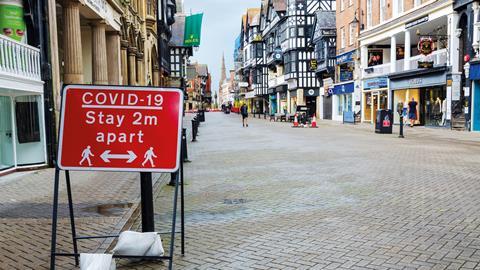
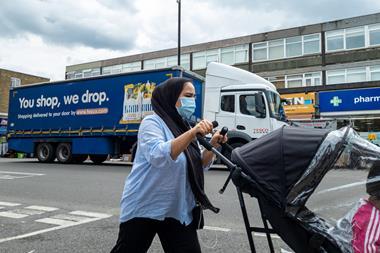
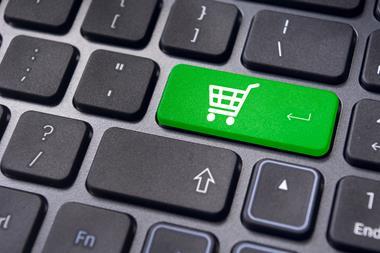

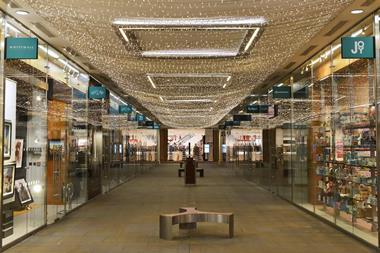
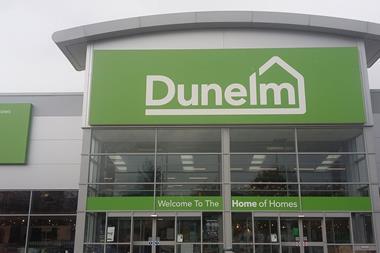
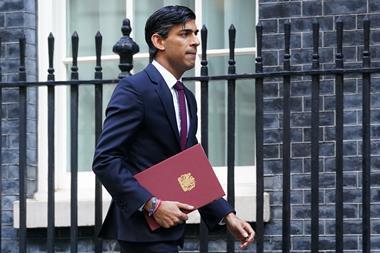
No comments yet